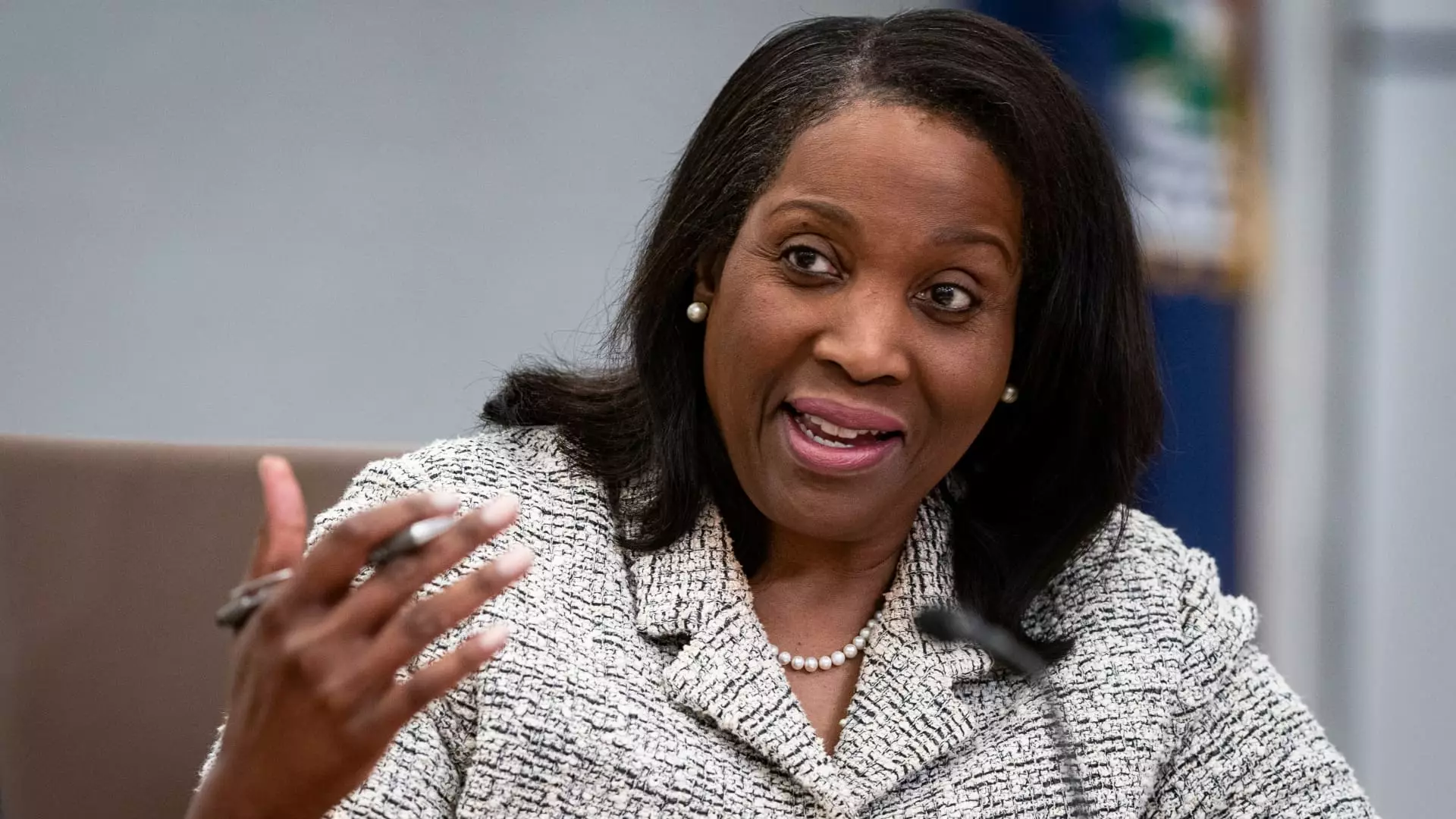The recent controversy surrounding Federal Reserve Governor Lisa Cook illustrates a troubling trend: the encroachment of partisan politics into the sanctity of central bank independence. The push from a Trump-era official, advocating for her removal based on unproven allegations, underscores how political agendas threaten the core functions of monetary policy governance. The Federal Reserve is designed to operate free from political interference, ensuring stable economic management based on empirical data and expert judgment. When public officials and political figures openly call for the dismissal of a central banker over personal or politically charged allegations, it jeopardizes this crucial autonomy. It risks politicizing decision-making processes that should instead be grounded in economic realities, not partisan grievances.
The Legal and Ethical Quagmires
Adding fuel to the fire is the apparent legal ambiguity surrounding Cook’s situation. The Department of Justice’s involvement, based on a criminal referral, raises serious questions. The clear language of the Federal Reserve Act stipulates that only the president can remove governors, emphasizing a system of checks and balances meant to shield policymakers from undue influence. The application of criminal allegations—particularly those linked to personal financial matters—in this context, seems misaligned with the role of the central bank and the boundaries of due process. The rushed call for her removal under the guise of serious misconduct appears more like a political stunt than a genuine attempt at accountability.
Moreover, the timing of these allegations—coinciding with her tenure and her votes—raises suspicion about their authenticity and motivation. Politicians and officials who leverage personal or legal attacks to undermine independent economic authorities undermine the ethical standards that should govern public service. Using unsubstantiated claims as a political weapon degrades public trust and risks creating a climate where central bankers are judged not by their policymaking but by their perceived loyalty to partisan interests.
The Risk of Political Instability and Economic Uncertainty
When political figures openly pressure the judiciary or federal agencies to take action against federal officials, the broader economy suffers. Central banks like the Federal Reserve are tasked with maintaining economic stability, controlling inflation, and fostering employment—all vital objectives that require a steady hand unfettered by the shifting winds of political favor. An environment where central bank officials are vulnerable to removal or harassment based on accusations and political pressure erodes the credibility of monetary policy, increasing volatility and uncertainty.
This hyper-politicization also risks destabilizing markets. Investors value independence and predictability—traits that are compromised when the authority of central bankers appears contingent on political whim. Such an environment may lead to a fragile economy vulnerable to abrupt policy swings, eroding consumer and business confidence. It also sets a dangerous precedent: officials might hesitate to make tough but necessary decisions out of fear of partisan backlash, thereby undermining the very institutions designed to safeguard economic health.
The Need for Thoughtful Governance over Reactive Politics
A mature democracy should uphold the rule of law and protect its institutions from partisan interference. The reaction to Lisa Cook’s case reveals a deep-seated flaw: an increasing tendency to treat economic officials as targets rather than as professionals executing complex policymaking. Instead of engaging in constructive oversight grounded in facts and fair procedures, these efforts seem driven by a desire to score political points or to damage the credibility of individuals who hold crucial economic responsibilities.
This episode exposes the importance of reinforcing legal protections and institutional norms that shield central bankers from politically motivated attacks. The integrity of monetary policy depends on the perception that decisions are made independently and based on data, not political expediency. Upholding this principle is essential for maintaining public confidence and ensuring the stability of the entire financial system.
Politicizing the careers of central bank officials undermines not only individual reputations but also the entire foundation of economic stability. It’s imperative that policymakers, legal institutions, and the public recognize the dangers of allowing partisan interests to interfere with independent agencies. Only by safeguarding these institutions can we ensure a balanced, resilient economy capable of weathering political storms without compromising its core principles.


Leave a Reply